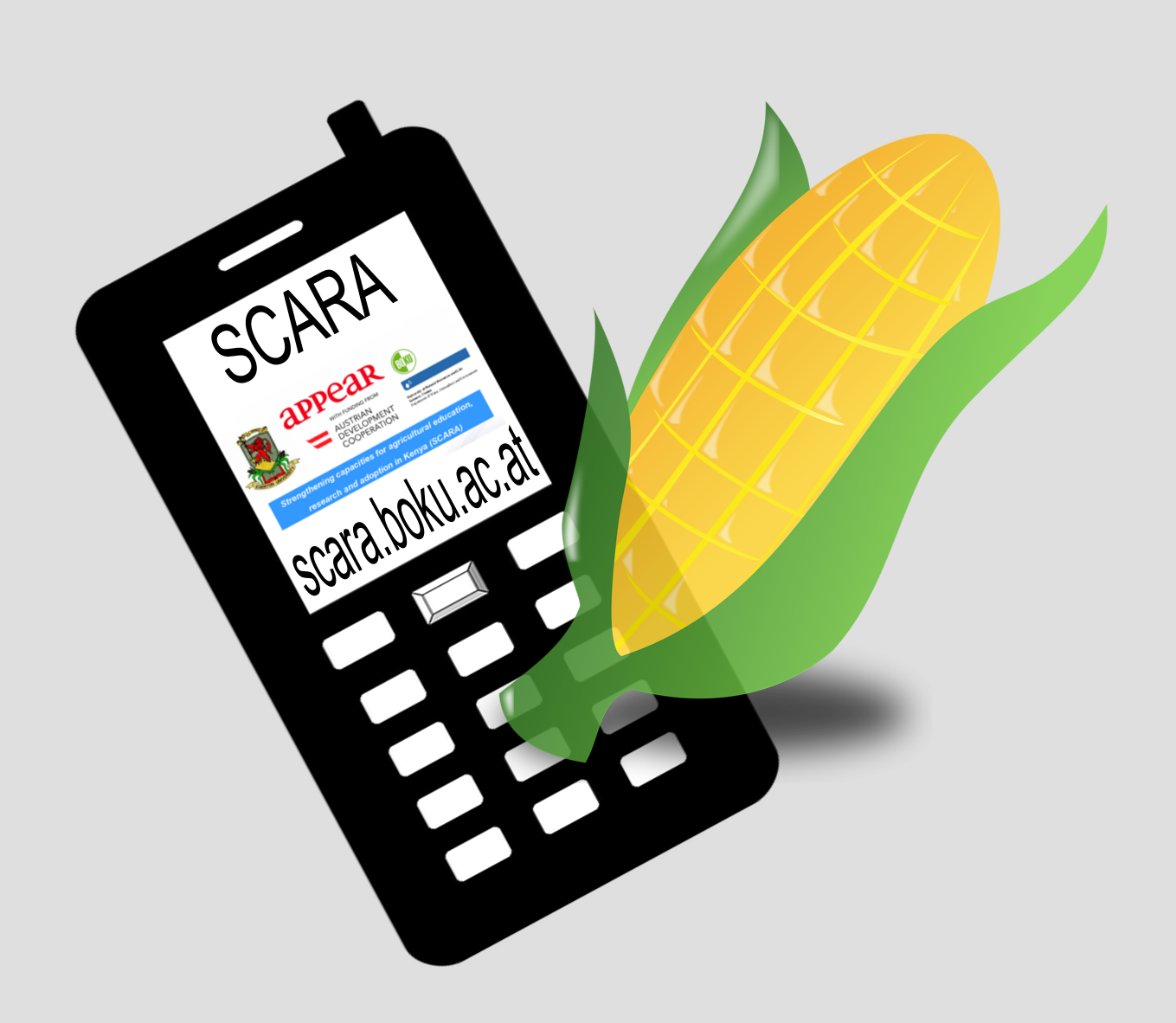ICT and e-learning will play a major role in the development and economic growth of African countries in the future, the agricultural sector being the backbone. ICT and specifically ICT4Ag technologies will significantly impact developments in agriculture, dissemination of knowledge and exchange of information. ICT will shape the ways farmer access information and use this knowledge to improve crop production, water productivity, sustainable use of land and management of scarce water resources or access markets.
Young farmers with a sound understanding of new communication technologies play a key role in this development. Education and lifelong learning, through means of ICT are key in reaching the country’s development goals and reducing rural poverty and food and nutrition insecurity. Universities should actively participate in developing innovative technologies for ICT4Ag and be ready for this future challenge and play a major role in identifying suitable solutions. SCARA project, jointly coordinated by Egerton and BOKU University, addresses and includes capacity building in respective areas, participation in the ICT development process, use of new technologies and tools in teaching and interaction with the key players like infomediaries, private businesses and the beneficiaries and communities. ICT4Ag will help to boost development of technologies tailor-made for small-scale farmers and increase technology adoption.
Overall this proposed project aims to strengthen Egerton Universities training, research and extension capacity in above mentioned areas. As a long-term goal adoption rates of newly developed technologies for agricultural water for food and nutrition security interventions shall increase due to utilization of proper ICT4Ag tools.
Specifically the project aims to reach following objectives including thematic areas listed below:
- Capacity of University and faculty staff to effectively develop tailor made research activities to increase adoption rates of water for food initiatives at farm level improved
- Effective mechanisms for youth in agriculture to address future challenges of water for food and nutrition security, access to information and learning and to improve capacity of future human resources developed
- Communication and networking channels through partnerships between key actors (universities, farmer groups, extension services, development actors, infomediaries, media and private sector) to identify options for ICT4Ag and eLearning and mLearning solutions for secondary and tertiary education sector functioning
- Viable solutions for ICT4Ag evaluated and future potential for development and up-scaling identified
- Strategies and options for sustainability of action developed
Thematic areas topic 1:
Use of participatory approaches to integrate socio-economic, ethical and gender issues into research and dissemination to shorten impact times and increase broad uptake.
Thematic areas topic 2:
Barriers for successful and sustainable adaptation and farm level adoption
Thematic areas topic 3:
Innovative research in providing sustainable and appropriate solutions in the nexus of climate change, water, food and nutrition security (FNS) and health (soil – water – atmosphere continuum, climate smart agriculture, value chain)
Thematic areas topic 4:
Innovative knowledge sharing and dissemination platform, tools for adoption and adaptation (ICT4Ag)
Thematic areas topic 5:
Youth and Agriculture – Investing in the future
The project will strive to identify options and technology innovations that are relevant to agriculture, value chains reliant on smallholder farmers, and increase access to new high potential technologies with interventions that support local market systems and ongoing locally relevant innovations. This will be done through a series of workshops and formation of an innovation platform (IP) dealing with crosscutting issues across major agricultural topics, ICT4Ag and innovations in e-learning for different stakeholders. In addition, the IP will become learning ground offering options for open discussion and mutual knowledge exchange. This process will result in best fit options and will contribute to an ongoing dialog among involved stakeholders. The formation of a youth council and IP, taking gender balance into account, will give the opportunity to capture the input of different groups of society, giving them a unique chance to be part of shaping the countries future by influencing policy makers and the development of streamlined curricula for the higher education sector, which take future challenges, ICT, technology adoption processes and mainstreaming gender into account. Consequently this process will result in strong collaboration, coordination and sustainable partnerships with different sectors and solutions for a strong institutional framework to support ICT4Ag. We strongly believe that the future of communication and knowledge exchange lies in peer-to-peer information networks, rather than old-style hierarchical transfer of technology systems, which will also break the barriers for underprivileged groups of society to access information and knowledge. The research, school idea competition with entries for female and male researchers and students and the hackathon will give researcher and students the opportunity to come up with innovative ideas and present themselves to a wider audience feeding their findings into the portfolio of solutions for ICT4Ag and suitable adoption pathways.
